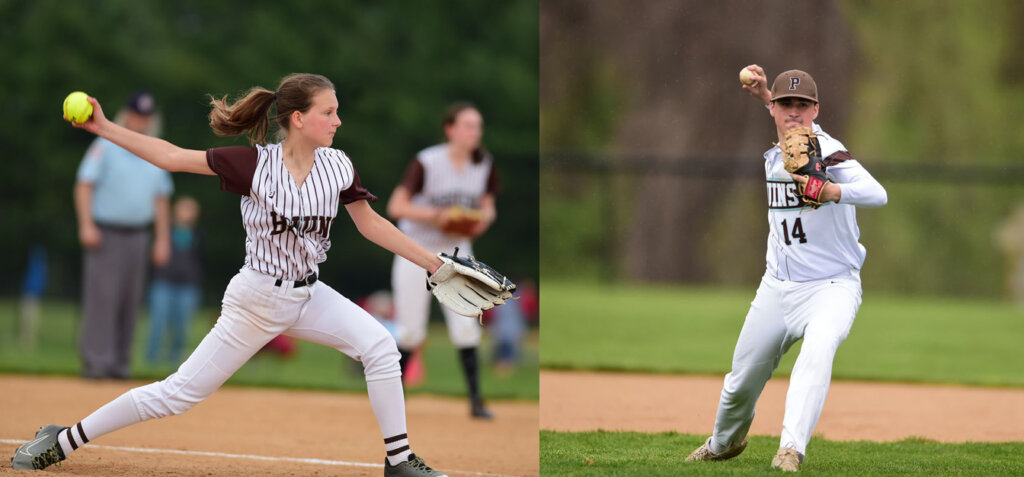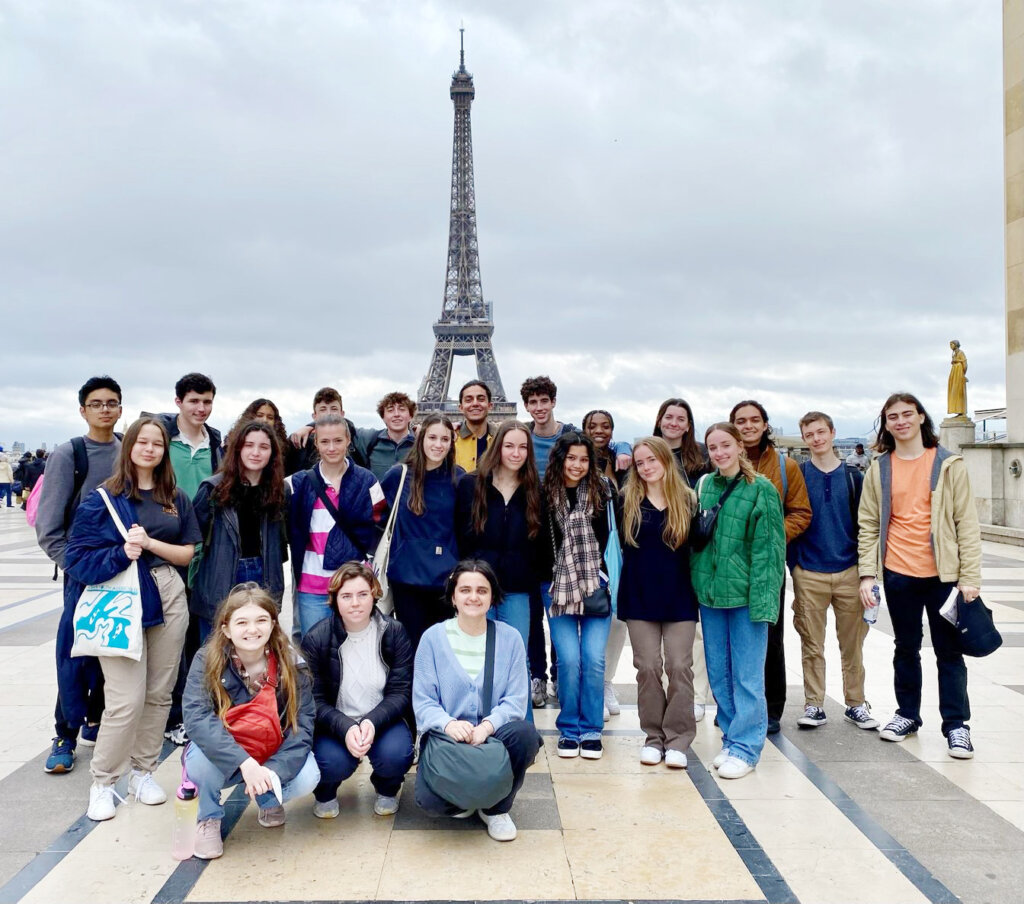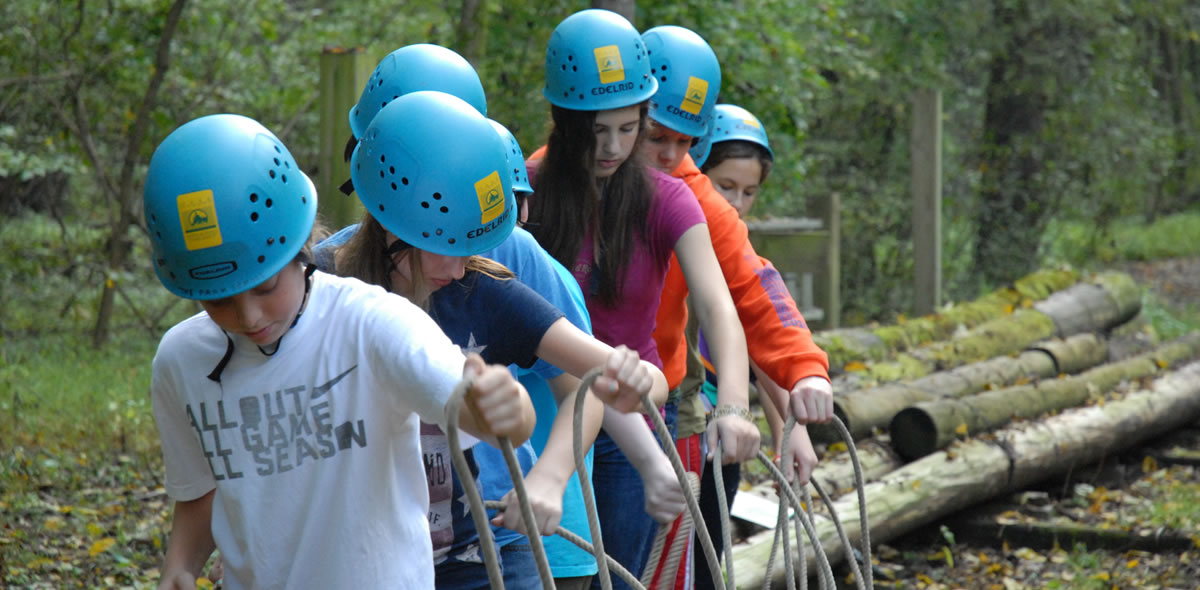English
The English department offers a curriculum that encompasses a wide variety of literary genres, periods, and themes.
In selecting courses, students are encouraged to build a program that reflects this variety. Students should also aim to take classes with different English faculty members, for each teacher brings to the classroom a distinctive style and different fields of expertise. Writing and discussion are central components of all English courses.
Requirements
- The Upper School English department requires eight consecutive semesters of English, including English 9
and English 10. - Sophomores who wish to double in English first semester must seek departmental permission before they do so.
ENGLISH 9
Grade 9 • Required
This course introduces students to various literary genres and modes of writing, and prepares them with the reading, writing, and discussion skills that they will need to thrive in our student-centered program. Structured analysis of selected texts is emphasized through close reading, annotation, and formal and informal writing assignments that include creative non-fiction, fiction, and analytical writing. Students experiment with the structural and rhetorical elements of various genres, and further their understanding of the writing process, particularly as applied to the literary essay, through revising in response to critiques from instructors and students. Texts may include a Shakespeare play, a contemporary play, a novel, and anthologies of poetry and short stories.
Grade 10 English Classes • Required
In the fall term, all tenth graders are required to enroll in one of the sections of English 10. These courses are organized by theme, but each focuses on the writing process — brainstorming, drafting, getting feedback, revising — and on the rhetorical modes of description, narrative, comparison/contrast, analysis, and definition.
English 10: Writing About Coming of Age
“Coming of age” is a phrase that stands for growing up, developing, or maturing. These narratives are stories that deal with the experience of growing up. But what does growing up or development even mean when we are talking about human beings? Is this a linear progression toward a finish line, or more of a messy becoming? How does a person’s identity, background, or environment impact this process? In this course, students will explore these questions and many more while they encounter coming-of-age narratives found in graphic novels, short stories, poems, and films. Students will write about these narratives and also create their own coming-of-age stories. Writing assignments could include a personal narrative, an analytical essay, and an article.
English 10: Writing About Film
Students look comparatively and historically at various aspects of filmmaking, experiment with ways of describing films and moving images, and see what the art of filmmaking has to teach them about the art of writing. They read broadly in both historical and contemporary film criticism and review. Writing assignments include essays, short descriptions, appreciations, and a fragment of a screenplay.
English 10: Writing about Food
While eating food is vital for every creature on the planet, writing about food is what distinguishes humans from beasts. While the objective in this course will focus on developing a personal writing process and writing in a variety of essay forms, students will practice those skills by reading and writing about what they consume. Assignments may include odes to foods we love, restaurant and meal reviews, and food memoirs. Come to class with an open mind and a sharp fork!
American Woman: Representations of Women in American Literature and Culture
Grades: 11-12
In this course, students will analyze representations of women in American literature and culture. They will primarily study representations of women in literature, but will also look to film, television, visual art, music, and pop culture to provide additional depth and variety to their examination. The characters and creators in this course will reflect the diversity of women in America. The course will allow a space in which to discuss the challenges and triumphs of being a woman in America, and the way representations impact the experience and expectations of womanhood. Assignments will include regular readings and short writing assignments, as well as a creative project and a final paper.
Black American Literature
Grades: 11-12
In this course, students will examine influential texts from the Black American literary canon. They will explore how Black writers have understood identity, freedom, family, and artistic expression in distinct historical moments. The class will consider how these writers are in conversation or at odds with each other. Discussing Black writers’ visions of America across genres, students will examine poetry, novels, theater, essays, and film. Possible writers include: Charles Chesnutt, Toni Morrison, Percival Everett, and Lynn Nottage.
Etymology and Semantics
Grades: 11-12
Etymology is the investigation of word origins; semantics examines how words mean what they do. Students study Latin and Greek bases, learn to tell the stories of particularly interesting words, investigate the history of English from its Germanic origins to its current status as a lingua franca, and write an essay or two. Please note: there is no way to study etymology without memorizing a lot of roots and affixes. If students do not like this sort of work and don’t like being tested on their grasp of details, they should not take this course.
Graphic Narratives
Grades: 11-12
In this course, students will read a variety of fiction and non-fiction graphic narratives to become familiar with the historical development, literary format, and complex visual language of contemporary graphic novels. They will pay close attention to the ways in which sequential multimodal art challenges how they experience narratives. A particular focus will be on texts that explore power, gender, identity, survival, resistance, hybridity, and joy. Students will respond to some of the questions of concern to the course in both analytical essays and creative projects.
Jewish Literature
Grades: 11-12
What makes literature Jewish? Is it the subject? The author’s beliefs? Are there particular themes that run through this literature? What can we learn from it – about humanity, Judaism, ourselves? Nu, why so many questions? In this class, students will ask all of these and plenty more as they read and discuss works by many of the following writers: Cynthia Ozick, Saul Bellow, J.R. Pick, Philip Roth, and others. The class will refer often to Dara Horn’s People Love Dead Jews and her examination of present-day anti-Semitism. Students will write analytical essays, style imitations, and personal narratives.
Literature of Sports
Grades: 11-12
Why do we love sports, and why has it inspired such exhilarating writing? In this course, students will examine both fiction and nonfiction about great athletes, epic wins, and stinging defeats. The class may consider the nature of fandom, the roles of race and gender in sports and the business of sports, and famous athletic scandals. Students will be asked to do their own sportswriting, both descriptively and analytically.
Playing and Writing About Music
Grades: 11-12 • 10 with permission of the English Department. This course may be taken for either an Arts or an English credit.
In this course, students will both play and write about music. Beginners will learn the basics of guitar chords and strumming; advanced players may choose to use their own instruments as the class explores musicality through a broad range of modern musical styles and periods. As students write about their own connections to music, they will be in the company of journalists like Lester Bangs, Joan Didion, Jessica Hopper and Ben Fong-Torres, as well as novelists like Ralph Ellison and Ondaatje, who try to understand what music is and does through fiction. Examining music from Robert Johnson to Bob Dylan to Nas, the class will explore the connections between form and ethnicity, experiment with ways of describing tone, form, and lyrical ideas, and also learn how to incorporate them into students’ own musicality and writing. Assignments will include an annotated playlist, a musical autobiography, a concert review, an homage to a great work, a character study of a musician or scene, and a critical appreciation of an album.
Short Novel
Grades: 11-12
The scholar Jerome Beaty remarks that, “The short novel can be as simple as a short story and as complex as a novel; it is a happy hybrid.” The work of this class will include reading, discussing, and writing about several examples of this beautiful form. This year, students will examine speculative fiction from the global south. In past years, texts have featured works by James Joyce, Franz Kafka, Toni Morrison, Nnedi Okorafor, Sherman Alexie, George Orwell, Sandra Cisneros, Susan Abulhawa, Haruki Murakami, Salman Rushdie, and others.
Sympathy For The Devil
Grades: 11-12
The image of the devil is at once so familiar and so strangely various. He is somehow both a monster reeking of decay and sulfur, and a sophisticated dandy promising pleasures and undermining sureties. By the time the devil meets the young Mississippi blues player Robert Johnson at the crossroads (promising him heavenly guitar skills in exchange for his soul) the image of the devil has gathered elements from the Bible and the figure of Dionysius in the Classical Mediterranean world, from West African religion and Caribbean voodoo, from folklore and the European Faust tradition. In this course, students will examine the various cultural threads that inform the figure of the devil and try to decide what it all means. Readings will include Zora Neale Hurston’s versions of African-American folk tales, Milton’s Paradise Lost, Goethe’s Faust, Mikhail Bulgakov’s The Master and Margarita, and Wole Soyinka’s The Bacchae of Euripides.
The Big House: Prison Literature
Grades: 11-12
This class will explore the nature of confinement, the logic of punishment, and the principles and mechanics of justice that have fluctuated across centuries and civilizations. The curriculum is far-ranging (including fiction, poetry, memoir, and philosophy), and features contemporary American literature that depicts incarceration, solitary confinement, and recidivism. Students will also read selections from Wally Lamb’s compiled testimonies by women at York Prison. This course demands a nightly commitment to reading and an eagerness to engage in discussion. Written work will include personal reflections, exercises, analytical essays, poetry, and narratives.
The Meaning of Life
Grades: 11-12
Why are we here? What should we do with our one precious life? What does it mean to lead a good life? These questions have plagued philosophers and poets since time immemorial. In this course, students will seek out myriad answers to these questions, from mundane to profound, from ancient to contemporary. The class will study literary, philosophical, and religious texts, as well as the quotidian texts students encounter every day, from pop songs to billboards. The quest will be to come to individual answers for each student – or, if not answers, then ever-deepening questions.
Writing Practicum
Grades: 11-12 • After completing the course, students will serve for the rest of their Park careers as tutors in The Michael Cardin ’85 Writing Center. Preference will be given to juniors; limited seats will be held for seniors.
This is an intensive writing workshop that is also about the teaching of writing. Students will write and revise creative nonfiction. In recent years, assignments have included a best earth memory, description of a real or imagined photograph, favorite song analysis, philosophical meditation, and college essay – as well as stories, poems, and AP exam responses. The focus throughout will be on the process of writing, and students will learn – through reading, discussion, role-playing, and lots of practice – the techniques of effective peer tutoring. They will tutor writers from the Lower, Middle, and Upper School.
Writing Workshop: Short Fiction
Grades: 10-12
This class centers on the workshop experience, in which each student composes and shares a short story that corresponds to a focal point of the craft (dramatic action, setting, characterization, tone, perspective, dialogue, time management, psychological distance, the unreliable narrator, the extension of metaphor, and the delivery of statement are among the elements that we will explore). Students will read a selection of short stories to bolster their grasp of each unit of study and must be energetic about critiquing one another’s written work.
A Good Man is Hard to Find: Immoral Heroes in American Literature
Grades: 10-12
This class aims to engage with the authors, novels, and characters who have helped shape the American conscience, but whose influence and moral vision have come under scrutiny in our present culture. Students will read works from the American canon and works from outside of it, in order to explore whether such a pantheon will (or should) persist, and what factors threaten to overturn our criteria for excellence in narrative art. This course involves a nightly commitment to reading, as well as regular written work (personal reflections, exercises, analytical essays, poetry, and narratives).
Art of the Essay
Grades: 10-12
In this course, students will work toward a deeper understanding of the essay—its history, its elegance, and its inner workings. If the essay represents the mind in motion, then students will seek to harness that motion and shape it into clear, eloquent, and insightful pieces of writing. To do so, they will study the work of published essayists, write essays of their own, and discuss these works in a workshop setting. Forms covered may include narrative, meditative, and lyric essays.
A Place for Us: Musical Theater as Refuge
Grades: 10-12 • This course may be taken for either an Arts or an English credit.
This class will trace the birth and development of that uniquely American art form: the Broadway musical. Students will listen to songs, watch productions, and even do a little singing! Throughout, they will consider how the changing shape of the musical reflects the identities and experiences of the people who created it – people often considered “outsiders” due to race, ethnicity, religion, gender, and sexuality. The class will examine how composers, writers, and performers critiqued, reworked, and affirmed American mythology through these shows. Students will be asked to write reflectively and analytically about the musical, and there will be a culminating creative project. Shows to explore may include: Showboat, Kiss Me Kate, Oklahoma!, West Side Story, Cabaret, Parade, Ragtime, Company, Les Miserables, and In the Heights.
Environment in American Literature
Grades: 10-12
In this course, students will analyze representations of environment in American literature through the lens of ecocriticism. They will start with some foundational ecocritical theory and then move through environmental American literature in several themed units (for example: Animals, Ecofeminism, Transcorporeality, and Urban Environments). In the analysis, the class will note historical context, form, relations to the nonhuman, and the way nature is framed. Students will unpack representations of environment in order to understand their literary value, but also discern the kinds of human/nonhuman relations these representations can provoke or invite. They will contemplate representations and responses to nature as we embark on a service-learning project, The Eco Impact Project, which will allow the class to create the kind of representations that bring about sustainable human/nonhuman relations.
Family Stories
Grades: 10-12
In this course, students will consider how writers tell the story of a family. How does a novel or poem accommodate the voices of each member? How do power dynamics within the family affect the way the story is told? Does family affirm individual identity or restrict it? What counts as a family in the first place? In addition to analyzing literature, students will have the opportunity to write family stories of their own. Possible texts include: Ghachar Ghochar by Vivek Shanbhag, Pride and Prejudice by Jane Austen, White is for Witching by Helen Oyeyemi, and As I Lay Dying by William Faulkner.
Foundational Texts of the Western Tradition (Bible and Literature)
Grades: 10-12
From the “forbidden fruit” of the Garden of Eden to the idea of a suffering savior, our culture is deeply infused with images, themes, and questions that can be traced back to biblical and other ancient sources. In this course, students will read some of these ancient texts and then examine some of their more modern manifestations. Readings will include Genesis, The Book of Job, Ecclesiastes, The Gospel of Matthew, Paradise Lost (excerpted), as well as sermons, stories, poems, and essays. Discussion will be conducted primarily in the seminar format, so class participation will be an essential aspect of the class. There will be opportunities to write in response to the readings in both creative and analytical forms.
Gods, Demons, Heroes, Lovers: Epics of the World
Grades: 10-12
In this course, students will look at epic poems and sagas from all over the world in order to see how different cultures have imagined their worlds through the encounters of heroes and lovers with the divine, the demonic, the political, and the forces of nature. Texts will include such works as the Iliad from the ancient Northern Mediterranean, the Sundiata from Mali, the Edda from Norse culture, the Mahabharata from India, and the Shahnameh from Persia, as well as selections from contemporary works that draw upon them.
New Writers, Newer Books
Grades: 10-12
Do you walk past bookstores longingly, wishing you could read the latest releases, but know that you’ve got too much homework to do? Are you curious about reading living authors who are writing today? This class will look at the fiction, nonfiction, and poetry published within the last three years, and students will examine the state of literature now. From widely published prize winners to works from quieter, independent presses, students will become literary critics of the most contemporary writing. Assignments may include book reviews, imitations, analytical essays, and author profiles/interviews.
Poetry Writing
Grades: 10-12
In this class, students will allow every poem to be an experiment. They will play with language, attention, emotion, interaction, and structure—always asking, “What kind of poem will this kind of play make?” What kind of poem comes from sitting in stillness? What kind of poem comes from spontaneity? What kind of poem comes from confession? What kind of poem comes from collaboration? What kind of poem comes from following a strict form? What kind of poem comes from thinking of language as paint we spread on a piece of paper? Though students will engage in regular workshopping, the question will never be “How good is this poem?” Instead, students will train themselves to ask, “What kind of poem do we have here? How can it become more itself?”
Poetry: Tradition and the Avant Garde
Grades: 10-12
This is a good course to take for students who not only want to read some of the most quoted poems in the English language, but also want to know more about how these poems sit among the cultural arguments and the ethnic and international traditions that challenge and inform the mainstream. Traveling from the Norse invasions to the flowering of post-colonial literatures to hip hop, this course will trace the evolution of forms, the changing role of the poet, and the shifting shape of literary fashion and canon across the English-speaking world. Students will look at poetry from Beowulf to Amanda Gorman’s reading at Biden’s inauguration, including major poets and the history of the evolving avant-garde, with some attention to important international influences. Writing will include frequent imitations, short analytical pieces, and an extended study of a poet of students’ own choosing.
Proceed with Caution: Horror Stories
Grades: 10-12
Warning: The literature in this course contains frightening situations, blood-sucking villains, haunted mansions, uncanny valleys, and monsters of the fantastical and everyday variety. Students will travel through the dark, mysterious corridors of scary stories seeking to uncover what they fear most, and examining how writers throughout literary history have tapped into their deepest fears. The class will explore multiple sub-genres, like mystery, macabre, thriller, apocalyptic, and true crime. There will be regular short writing assignments, a creative project, and an analysis paper at the end of the semester.
Psychology and Literature
Grades: 10-12
“Character is destiny” —Heraclitus
“Character is plot” —F. Scott Fitzgerald
If character is destiny, or at least plot, what is character? To answer that question, students in this class will explore theories touching on four psychological domains: dispositional, intrapsychic, socio-cultural, and adjustment. They will use their repertoire of theories to ask crucial questions about the characters they encounter: Why do they do what they do? How do their personalities determine their responses? What environmental or social factors may have affected the development of their personalities? And, of course, students will be asking these same questions about themselves.
Revolutionary Humanism: Literature and Philosophy from the Wretched of the Earth
Grades: 10-12
This course will examine literature and philosophy that speaks to the epistemic violence the philosopher, psychiatrist, and revolutionary Frantz Fanon excavates in his foundational texts, The Wretched of the Earth and Black Skin, White Mask. Students will also read texts from Edward Said, Arundhati Roy, Salman Rushdie, Zadie Smith, bell hooks, Rita Dove, Toni Morrison, Kiran Desai, Lewis R. Gordon, Gloria Anzaldua, Ross Gay, Natalie Diaz, Oswald De Andrade, Wole Soyinka, Malcolm X, Primo Levi, Jean Amery, John Trudell, James Baldwin, Kwame Antony Appiah, and others who engaged with similar issues in their work. Yes, the catastrophic impact of colonial violence on the bodies, minds, and cultures features strongly in the investigation, but students are also interested in the tactical and creative ways the wretched have reimagined the colonial entanglements into acts of resistance, transformation, and joy. Students will write both creative pieces and analytical essays.
The American Male
Grades: 10-12
In 2018, author, comedian, and actor Michael Ian Black recently wrote in the New York Times: “The past 50 years have redefined what it means to be female in America…Boys, though, have been left behind. No commensurate movement has emerged to help them navigate toward a full expression of their gender. It’s no longer enough to ‘be a man’ – we no longer even know what that means.” This course is a historical and cross-cultural exploration of what it means to be male in America. Through essays, articles, novels, and documentaries, students will unpack how men and boys are portrayed within our culture, while considering how these portrayals reflect how an understanding of concepts of masculinity within American society has evolved. Students will be asked to consider how race, religion, sexual orientation, ethnicity, and historical context intersect with concepts of masculinity. In addition to this literary exploration, the class will examine current events, popular culture, sociological research, and students’ own experiences as they wrestle with what it means to ‘be a man.’
The Documentary Impulse
Grades: 10-12
How do we define documentary? Does the term “documentary” only apply to film and photography? Can we also incorporate audio, graphic novels, performances, music, or paintings? The focus of this course is to analyze the history, theory, and language of documentary as an essential non-fiction narrative tradition. Students will explore various examples of documentaries and examine the rhetorical language used to present reality, truth, authenticity, and memory. They will write analytical essays and produce their own documentary projects.
The Symposium: Plato, Socrates, and the Art of Dialogue
Grades: 10-12
This class will combine a study of literature and philosophy with an emphasis on dialectic writing and enthusiastic discussion. Students will read several of Plato’s dialogues (including The Gorgias, The Phaedrus, and The Symposium) in an effort to grapple with the philosophies that Socrates and his fellow Athenians expressed, and to explore the art of dialogue itself. In addition to Plato’s enduring subjects (such as love, justice, and the theory of Forms), areas of emphasis in this class include techniques for developing a viewpoint, structuring an argument, and seeking meaningful ambiguity. Ultimately, each student will structure and host their own symposium on a topic of their choice.
Why We Wear What We Wear
Grades: 10-12
The idea for this course is taken in part from a book called Women in Clothes, a series of conversations about clothes between several hundred women from a broad diversity of backgrounds. The subjects they discuss, and which naturally have been considered by many wonderful writers, are the central questions of this course: why we dress as we do, who influenced what we wear, how our clothes influence how we feel and act, how our dress is understood by others, and how we might like to dress when we become who we are. Or put more broadly, the class will examine the connections between clothing and style, identity, power, image, self-expression, and belonging. The history of costume and fashion will serve as a starting point for conversations and readings about how people, regardless of or because of their identities, make themselves through clothing. The class will read authors such as Joan Didion, Colette, and Clarice Lispector with particular attention.





